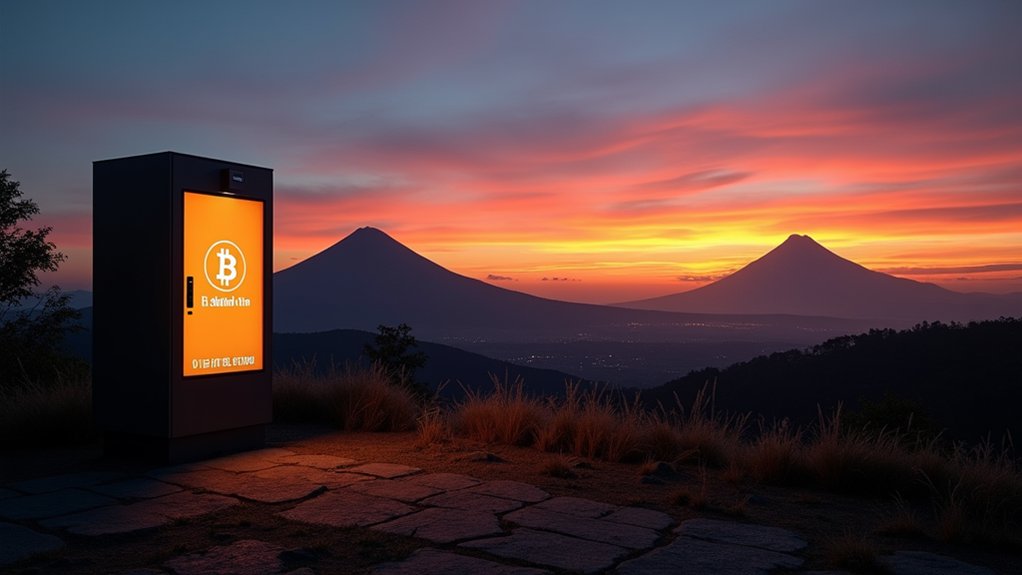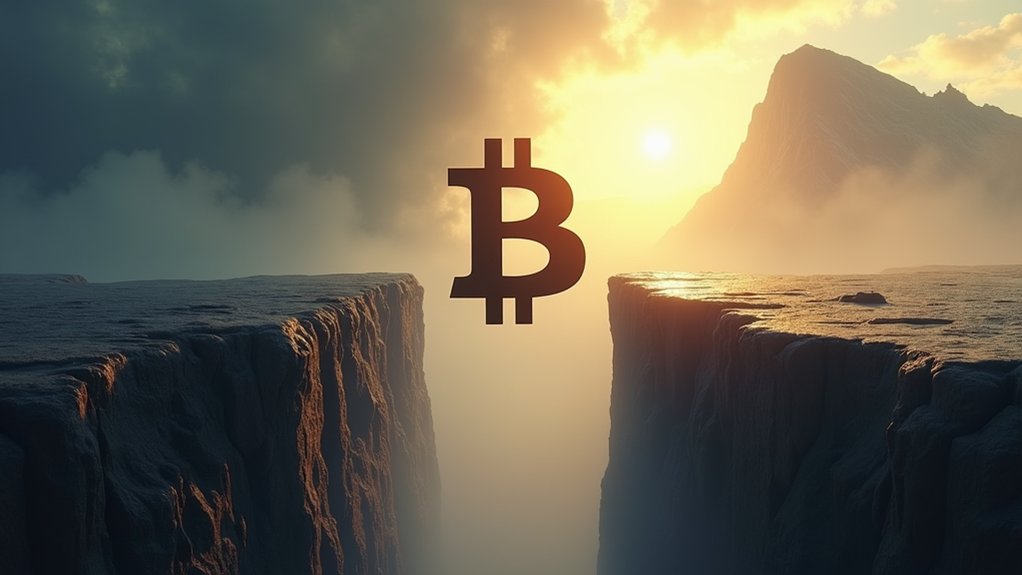In a move that sent shockwaves through the financial world, El Salvador became the first country to adopt Bitcoin as legal tender in September 2021. President Bukele‘s announcement at a Miami conference just months earlier had raised eyebrows, but few expected such rapid implementation.
The government didn’t mess around – they dropped $20.9 million on 400 bitcoins and rolled out the Chivo wallet faster than you can say “cryptocurrency.” Talk about going all in. The government set aside $150 million to back their Bitcoin experiment and scattered ATMs across the country like confetti. They even dangled a $30 Bitcoin incentive in front of citizens – because nothing says “trust this new currency” like free money. Most Salvadorans showed immediate skepticism, with 90% lacking Bitcoin understanding. The rapid growth of blockchain size meant significant infrastructure demands for the country’s digital transition.
Then came the grand vision: Bitcoin City, powered by volcano energy. Because why dream small? The motivation seemed noble enough. Reduce remittance costs, help the unbanked population, attract investment. But not everyone was thrilled. The World Bank gave them the cold shoulder, and the IMF practically had a conniption fit over the risks. The success of Bitcoin Beach initiative in 2019 had paved the way for this nationwide experiment.
Yet El Salvador pushed forward, accumulating 2,301 bitcoins by mid-2022, like a digital age treasure chest. Reality, though, has been a mixed bag. By 2022, more Salvadorans had Bitcoin wallets than bank accounts – sounds impressive until you learn that 88% still weren’t using Bitcoin by 2023.
The Chivo wallet had more technical glitches than a first-generation iPhone, and citizens remained skeptical. Who knew introducing a volatile cryptocurrency to a developing economy would be complicated? Fast forward to 2024, and El Salvador’s Bitcoin dream got a reality check. An IMF deal required making Bitcoin acceptance voluntary, but the government isn’t giving up.
They’re still buying Bitcoin, still pushing adoption, still mixing crypto with social programs. It’s like watching someone double down at a casino, except this casino is the future of an entire nation’s economy. Whether this bold experiment ends up as a cautionary tale or a revolutionary success story, one thing’s certain – El Salvador has got the world’s attention.





